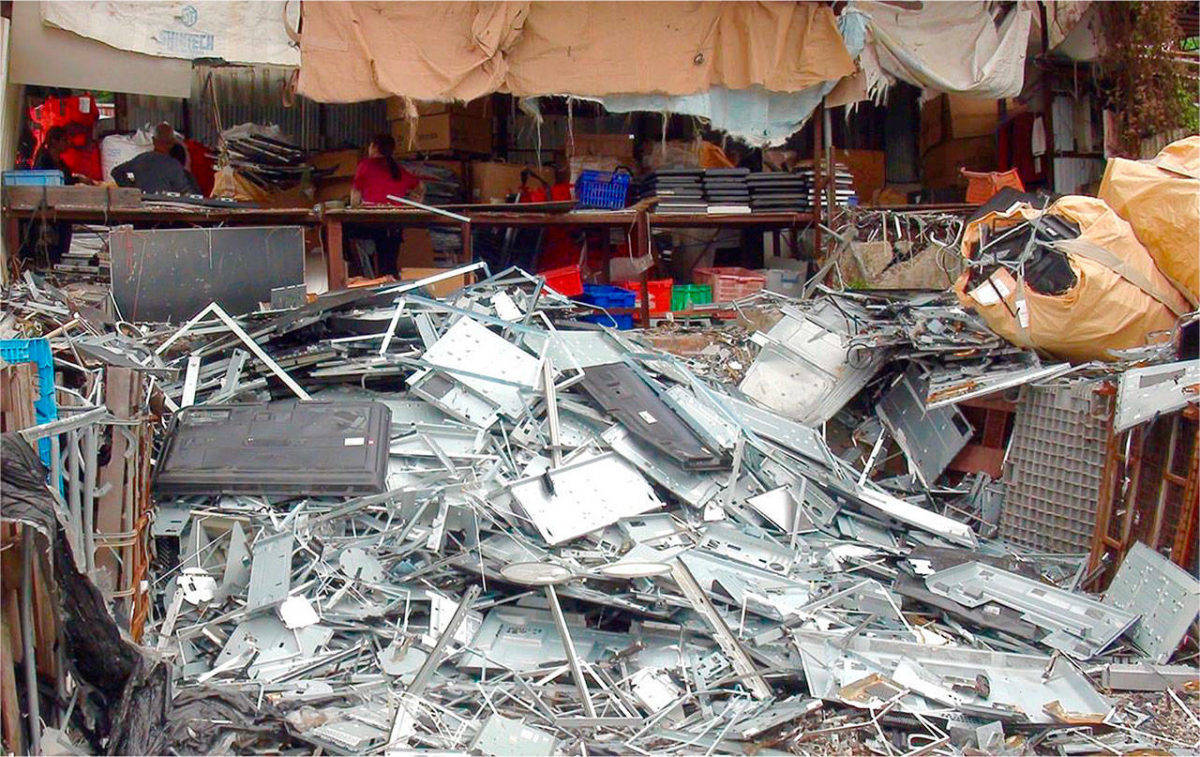The Bonney Lake man responsible for what is being called the country’s largest electronic recycling scam has been sentenced to 28 months in prison.
The ruling came down against local Jeff Zirkle, 55, and his business partner Craig Lorch, 61, of Seattle — the founders and owners of Total Reclaim, the northwest’s largest electronic waste recycler — on April 23.
The investigation and court case against Total Reclaim has spanned four years, finding Zirkle and Lorch secretly sent 8.3 million pounds of LCD computer monitors to Hong Kong, contrary to its published values and against operating agreements made with not only Washington’s E-Cycle program, but Oregon E-Cycles and Greenstar Alaska, which serves the state’s interior.
Total Reclaim has been working with the state of Washington since the 1990s, helping government agencies and private companies recycle refrigerators and HVAC equipment.
The company grew to become the Pacific Northwest’s largest electronic waste recycler and the biggest participant (“by far,” prosecutors note in court documents) in Washington’s E-cycle program, which allows people to drop electronics off at designated sites to be given to electronic recycling companies.
Total Reclaim’s website claims the company has recycled more than 536.6 million pounds of recycling and counting, and according to court documents, Zirkle and Lorch made $7.8 million each between 2008 and 2015.
In 2003, Total Reclaim signed the Electronic Recycler’s Pledge of True Stewardship, which in part does not “allow the export of hazardous e-waste [they] handle to be exported from developed to developing countries either directly or through intermediaries,” according to charging documents.
Many electronics, specifically devices like computer monitors that use LED lights contain mercury, which means they must be recycled in a manner that’s both environmentally and worker-safe.
The company also became an e-Steward in 2012, which meant Total Reclaim agreed to annual audits to ensure a number of requirements and practices were being met, including not sending e-waste to developing countries.
Their businesses success and supposed commitment to safe electronic recycling led Total Reclaim to be held “as the premier example of a responsible recycling company,” court documents read.
In fact, the nonprofit BAN (Basel Action Network), which oversees Washington’s E-cycle program, never suspected Total Reclaim spent seven years taking public money to recycle LCD monitors, and then turning around to take additional money to send the monitors to Hong Kong.
Lorch even “enjoyed a close relationship” with BAN founder Jim Puckett, and Lorch appeared in a BAN documentary titled “Exposing Harm: The High Tech Trashing of Asia,” court documents read.
But as Washington’s E-Cycle watchdog, it is BAN’s responsibility to watch where e-waste comes and goes, and in 2015, placed GPS trackers on LCD computer monitors in Portland, Oregon.
The trackers showed the monitors going from Portland to Total Reclaim’s Seattle HQ, but then surprisingly, to an unknown facility on Harbor Island and then overseas to Hong Kong.
When the watchdog confronted Zirkle and Lorch, they falsified shipping documents. Unconvinced, BAN published an Evidentiary Report May 2016.
After the report was published, Total Reclaim said in an official statement that they were under “immense pressure” from economic challenges in the electronic recycling market, which led them to make these decisions.
“We take no issue with the factual findings of the e-Stewards Evidentiary Report. Rather we apologize for failing to live up to our commitments and pledge to rebuild our status as an industry leader and rebuild the trust of the e-Stewards organization, our customers, and the public,” Total Reclaim continued, but added that their underhanded dealings were a “short-term business decision,” a description undercut by the fact they spent close to a decade sending monitors to Hong Kong.
But several pieces of Zirkle and Lorch’s statement rang false, according to the DOJ. While they claimed economic difficulties led to these decisions, a Department of Ecology analysis shows it would have cost Zirkle and Lorch about $2.6 million total to have had the monitors handled responsibly by a third-party in the country.
Instead, Zirkle and Lorch sold those monitors to a company called M-Stream for roughly $1.3 million.
Charges against Zirkle and Lorch were filed November 2018.
While selling electronic recyclables to Hong Kong isn’t a crime, a large part of this case focused on why shipping monitors to Hong Kong betrayed the public trust to a “breathtaking” extent, DOJ documents read.
Once in Hong Kong, the monitors were smashed apart by Chinese laborers without any safety precautions before parts were separated into piles. This broke open the LCD lights, exposing workers and the environment to mercury, which is well known for causing damage to the nervous, digestive, and immune systems, can cause birth defects, and more, even in small amounts.
“Motivated by greed, these defendants betrayed every pledge they made to be good environmental stewards,” First Assistant U.S. Attorney Tessa M. Gorman said in the recent Department of Justice release. “They protected their salaries of more than a million dollars a year, while harming the environment and risking the lives of disadvantaged Chinese workers who struggle daily just to support their families.”
The DOJ recommended a prison sentence of 60 months each “to reflect the seriousness of the offense [and] to deter others from engaging in similar conduct,” but Zirkle and Lorch only received 28 months and supervised released for three years.
The two also agreed to pay $1 million in restitution on top of more than $1.07 million in related fees.
As far as the Department of Justice is aware, there have only been three e-cycle scams prosecuted, including Total Reclaim’s case. The other two cases revolved around the exporting of CRT (tube) televisions abroad — which contain lead, but not mercury — and neither of these cases came close to the volume of recyclable materials that were irresponsibly exported as Total Reclaim.


